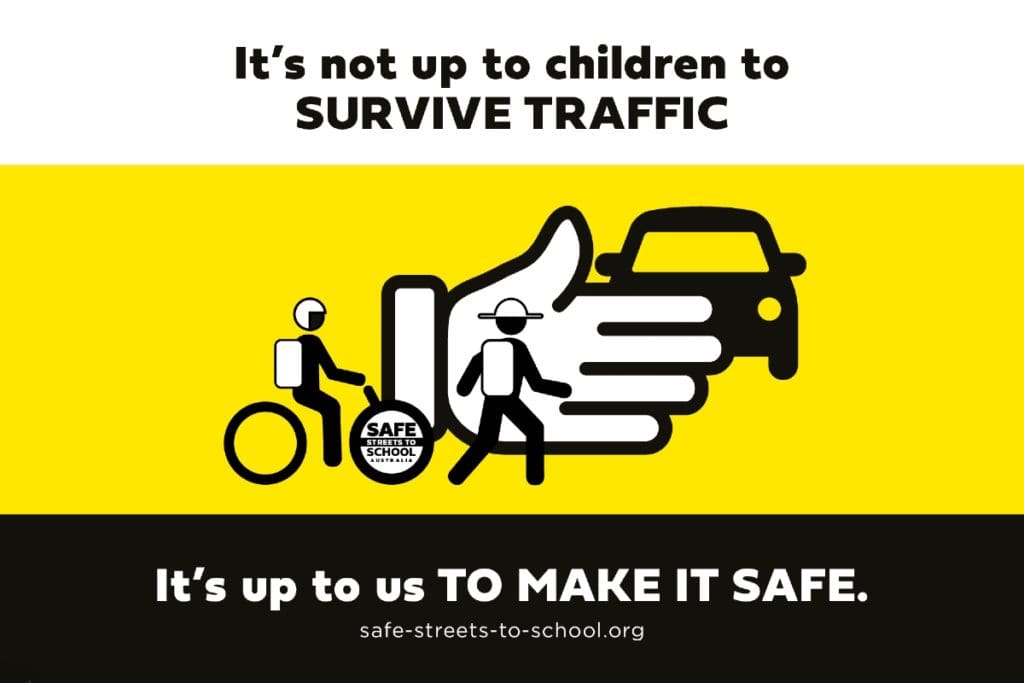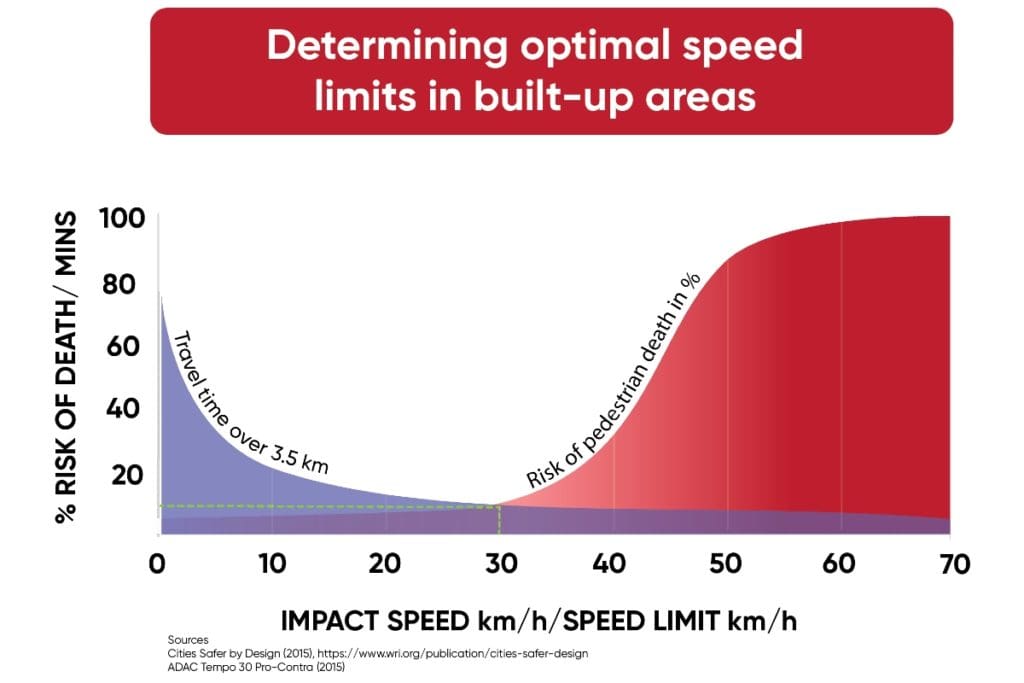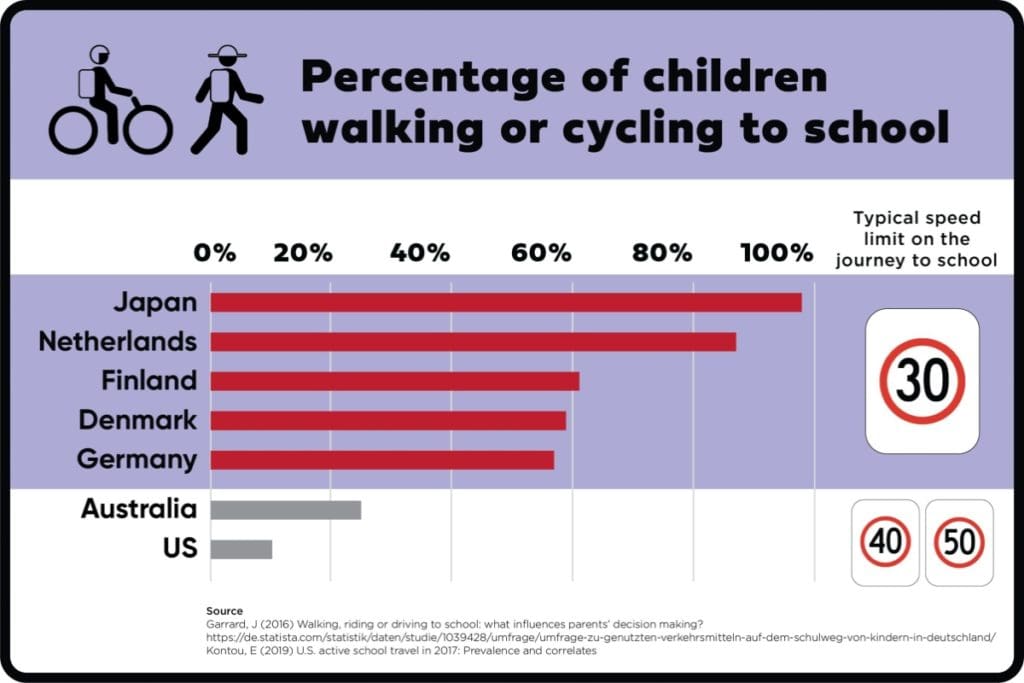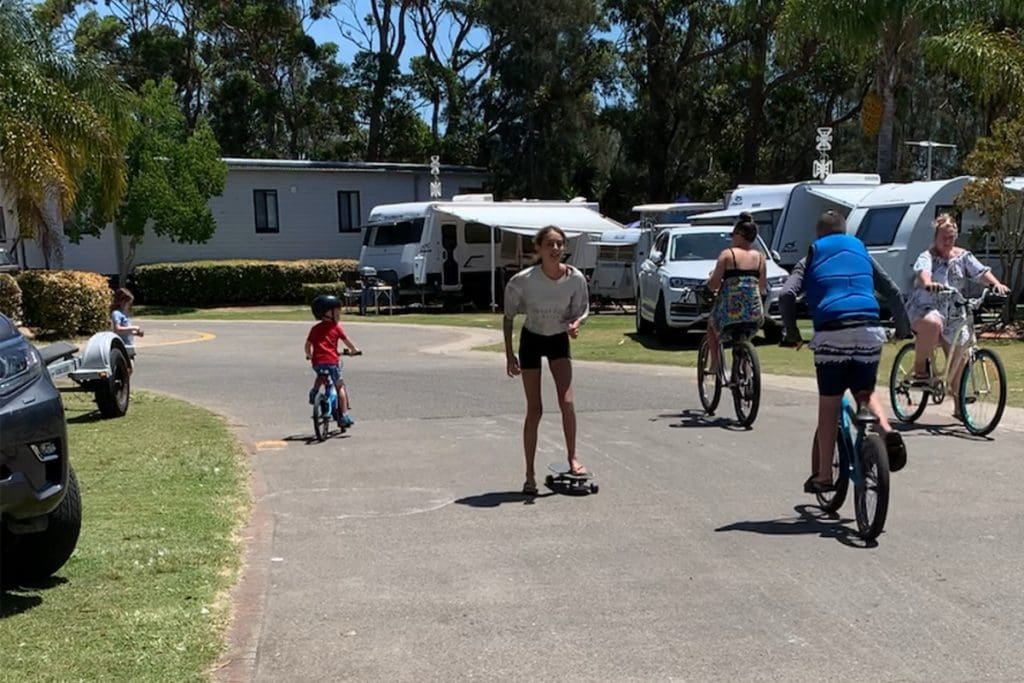Slow Down Day Putting More Responsibility on Drivers

Wollongong, NSW
National Ride2School Day will be held on Friday 25 March and an alliance of road safety advocates is seizing upon the annual event, and tweaking its messages, to put greater emphasis on safer driver behaviour.
The Safe Streets to School group and speed reduction lobby group 30Please.org are working together and with three Wollongong primary schools to conduct Slow Down Day, also on 25 March.
A founder of 30Please.org and Safe Streets to School Australia, Lena Huda, said while Ride2School Days is a wonderful initiative, much of the message is about children watching out for cars.
“We want to change that emphasis to ‘yes, kids you need to watch out for cars but motorists also need to watch out for our kids’,” Lena said.
“Our campaign highlights have good walking and riding are for you, but it’s also about the need for cars to slow down.”
She said driver behaviour was the greatest obstacle to kids walking or cycling to school in Australia.

Driver Attitudes are Greatest Challenge
Changing motorist attitudes about sharing the roads and a default speed limit of 30kmh in urban areas would bring the greatest, most cost-efficient improvement to active transport participation – and the confidence of parents to allow their children to travel independently.
The inaugural Slow Down Day, supported by Wollongong City Council and Transport for NSW, is involving Mt St Thomas Primary, Figtree Heights Primary and Lindsay Park Primary.
It is part of a 12-month pilot project, Safe and Active Routes to School (SAARTS), involving the three schools, 30Please.org and Safe Streets to School.
“Students at the schools have participated in a number of activities leading up to Slow Down Day,” Lena said.
“They have made posters and together we have created videos to run on social media.
“On the day, we will have a lot of signs out encouraging drivers to slow down.”
“Yes, kids you need to watch out for cars but motorists also need to watch out for our kids.”
Safe Streets to School Australia and 30Please.org were among an alliance of 13 public health, transport, education and climate organisations, including We Ride Australia, that listed lower default speed limits in residential areas, shopping streets and school zones as the top goal in its Three Transport Priorities document, launched in preparation for the Federal Election.
The pre-election wish list – calling on election candidates to adopt three campaign platforms that encourage active transport – points to a “growing number of global case studies showing the benefits of reducing default urban speed limits to 30kmh”.

Australia Ranks Poorly for Child Wellbeing
Lena says the broader health benefits were illustrated by a 2020 Unicef international report that scored countries on the wellbeing of their children and ranked Australia 32nd out of 38 wealthy countries.
The Innocenti Report Card 16 – Worlds of Influence: Understanding What Shapes Child Well-being in Rich Countries – assessed each country on the mental well-being, physical health and skills of its young people.
Lena said the top of the list is dominated by country that have embraced 30kmh speed limits in urban areas.
She also points to evidence closer to home, with a NSW Centre for Road Safety report stating that “in a crash between a car and somebody walking, there is a 10% risk that the person will be killed at 30kmh, 40% risk at 40kmh, and a 90% risk at 50kmh.
“Why do we expect drivers to slow down in school zones but find it too much to ask also to slow down where the children live?” she asks.
“Researchers have found overwhelming evidence that neighbourhoods that encourage active travel have a high impact on physical and mental wellbeing.”
She says walking and riding not only provide exercise but is the only way for children to independently travel to places.
“Streets that are not safe for kids steal their independence. Freedom of choice is a significant factor in influencing children’s overall levels of subjective wellbeing,” she added.

Free-Range at Holiday Parks
Lena says Australian holiday parks are a telling example of how Australian children and their families behave when cars travel at a lower speed.
“When traffic speed is not an issue, kids are given their freedom and they go free range,” she remarked.
“Australian holiday parks provide an impressive example of the free-range, active childhood kids in many northern European countries still enjoy. There are streets where kids are allowed to play, scoot or ride their bikes unsupervised.
“Here we find low-traffic, low-speed streets where drivers watch out and where parents feel confident in their children’s abilities to be independent outside, without constant supervision even when surrounded by strangers.”
Lena Huda is next month’s featured cycling champion in our influencers! video series. Each ‘influencer’ is making a significant difference to some aspect of cycling or micromobility and our interview with Lena will feature on the Micromobility Report website from 1 April.

